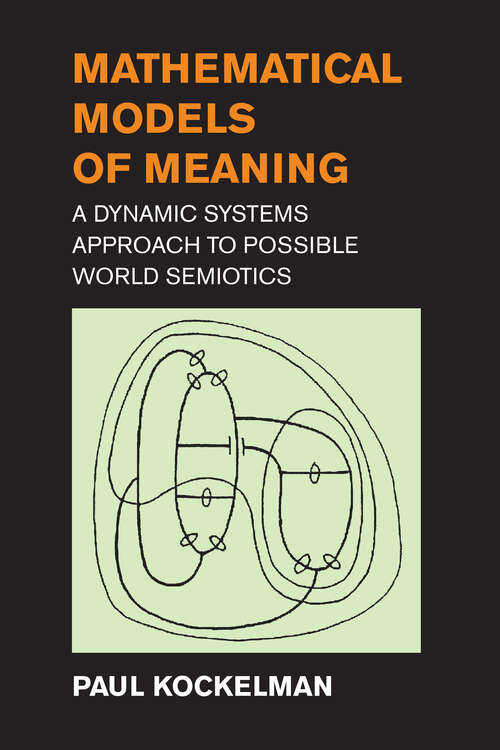Mathematical Models of Meaning: A Dynamic Systems Approach to Possible World Semiotics
By:
Sign Up Now!
Already a Member? Log In
You must be logged into Bookshare to access this title.
Learn about membership options,
or view our freely available titles.
- Synopsis
- A mathematical model of meaning that captures the dynamics and diversity of meaning-oriented agents.In Mathematical Models of Meaning, Paul Kockelman offers answers to the following kinds of questions: What is meaning? What is the relation between meaning, information, value, and purpose? What ingredients are necessary for a system to exhibit meaning? What behaviors, and capacities for behavior, are particular to meaning-oriented agents? Is there a relatively simple mathematical model that can adequately capture the dynamics—and diversity—of meaning-oriented agents? And finally, how can we best bridge the divide between interpretive paradigms that are qualitative and context rich and formal methods that are quantitative and domain general?Partially grounded in a pragmatist approach, this book rethinks the semiotic, statistical, and logical currents of Charles Sanders Peirce&’s thought in relation to more recent developments in allied traditions. Putting possible worlds, as well as social relations, at the center of significance, it focuses on the emergence of meaningful behavior among relatively distributed agents that choose in real time, learn over developmental time, or evolve over phylogenetic time.
- Copyright:
- 2025
Book Details
- Book Quality:
- Publisher Quality
- Book Size:
- 288 Pages
- ISBN-13:
- 9780262383493
- Related ISBNs:
- 9780262552684
- Publisher:
- MIT Press
- Date of Addition:
- 08/19/25
- Copyrighted By:
- Massachusetts Institute of Technology
- Adult content:
- No
- Language:
- English
- Has Image Descriptions:
- No
- Categories:
- Nonfiction, Social Studies, Language Arts, Mathematics and Statistics
- Submitted By:
- Bookshare Staff
- Usage Restrictions:
- This is a copyrighted book.
